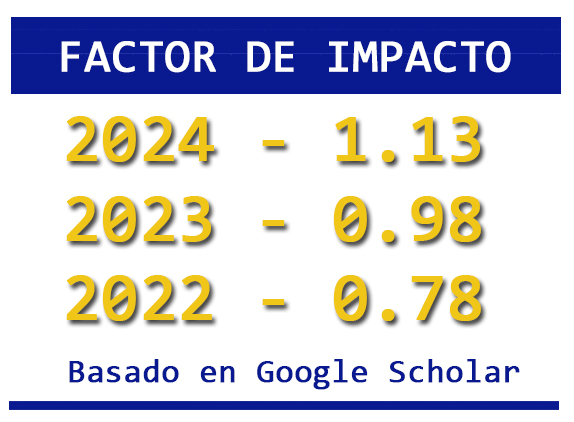EVALUACIÓN ESTRATÉGICA DE LAS ORGANIZACIONES ORIENTADAS A PROYECTOS
DOI:
https://doi.org/10.36790/epistemus.v12i25.81Palabras clave:
Computación blanda, Dirección Integrada de Proyectos, Inteligencia Empresarial, Modelado de Información de ConstrucciónResumen
El proyecto constituye la unidad básica organizativa de las empresas que inciden de manera decisiva en su progreso. La Dirección Integrada de Proyectos permite el desarrollo de buenas prácticas, mejora continua, gestión del cambio, integración y sinergia empresarial. La política de dirección por proyectos, el uso de indicadores y las tendencias en un proceso estratégico integrado de dirección son la base fundamental para el desarrollo de la Inteligencia Empresarial. El trabajo tiene como objetivo el desarrollo de un modelo de evaluación estratégica para las empresas que trabajan por proyectos en la DIP orientadas al Modelado de Información de Construcción. A través de la aplicación de un modelo de evaluación estratégica en el ciclo de vida de la inversión, se permite compartir el comportamiento de los indicadores en los cortes estratégicos entre directivos, equipo y partes interesadas, para proceder a la toma de decisiones en un proceso integrado de dirección. La...
Descargas
Citas
Amendola L. (2004). Estratégicas y Tácticas en Dirección y Gestión de Proyectos. Project Management. Universidad Politécnica de Valencia.
Bath, M. (2010). Project Classification Using Soft Computing. En: International Conference on Advances in Computing, Control & Telecommunication Technologies, pp. 537-539.
Certa, A., Enea, M., y Giallanza, A. (2010). A synthetic measure for the assessment of the project performance. DOI: https://doi.org/10.1007/978-3-642-04800-5_11
Business Performance Measurement and Management, pp. 167-180. Springer-Verlag, Berlin.
Delgado R. y Montes de Oca M. (2009). La gestión del Conocimiento Organizacional en la Toma de decisiones. En: Informática 2009. Palacio de Convenciones, La Habana, Cuba.
Delgado, R. (2011). La Dirección Integrada de Proyecto como Centro del Sistema de Control de Gestión en el Ministerio del Poder Popular para la Comunicación y la Información. CENDA, Caracas, Venezuela.
Espinosa A. (2012). La Ingeniería del valor y la Constructibilidad. En: 16 Conferencia Científica. Palacio de Convenciones, La Habana, Cuba.
Gao, H. (2010). A fuzzy-ANP approach to project management performance evaluation indices system. En: DOI: https://doi.org/10.1109/ICLSIM.2010.5461423
International Conference on Logistics Systems and Intelligent Management, IEEE, pp. 273-277.
Govindarajan, A. (2014). A Novel Framework for Evaluating the Software Project Management Efficiency - An Artificial Intelligence Approach. TELKOMNIKA Indonesian Journal of Electrical Engineering, 12(9), 7054-7058. DOI: https://doi.org/10.11591/telkomnika.v12i9.6408
Holness, V. R. (2008). Building Information Modeling Gaining Momentum. ASHRAE Journal. pp. 28-40.
Liu, Y., et al. (2013). Research on Evaluation of Project Management Maturity Model Based on BP Neural Network. Advances in Information Sciences and Service Sciences (AISS), 5(2), 693-701. DOI: https://doi.org/10.4156/aiss.vol5.issue2.87
Mewada, K. M., Sinhal, A., y Verma, B. (2013). Adaptive Neuro-Fuzzy Inference System (ANFIS) Based Software Evaluation. IJCSI International Journal of Computer Science, 10(1), 244-250.
PMI (2017). A Guide to the Project Management Body of Knowledge. PMBOK® Guide, 6th Edition. Project Management Institute, Pennsylvania, EE.UU.
Prince (2009). Managing Successful Projects with Prince2. In: TSO (Ed.), Londres.
SEI (2010). CMMI para Desarrollo, Versión 1.3. Mejora de los procesos para el desarrollo de mejores productos y servicios. Technical Report, Software Engineering Institute, EE.UU.
Stang, D. B. (2013). IT Project & Portfolio Management Magic Quadrant. Gartner Inc., Stanford.
Torres M. (2008). Fundamentos generales de la logística. Editora LogiCuba.
Publicado
Cómo citar
Número
Sección
Licencia

Esta obra está bajo una licencia internacional Creative Commons Atribución-NoComercial-SinDerivadas 4.0.
La revista adquiere los derechos patrimoniales de los artículos sólo para difusión sin ningún fin de lucro, sin menoscabo de los propios derechos de autoría.
Los autores son los legítimos titulares de los derechos de propiedad intelectual de sus respectivos artículos, y en tal calidad, al enviar sus textos expresan su deseo de colaborar con la Revista Epistemus, editada semestralmente por la Universidad de Sonora.
Por lo anterior, de manera libre, voluntaria y a título gratuito, una vez aceptado el artículo para su publicación, ceden sus derechos a la Universidad de Sonora para que la Universidad de Sonora edite, publique, distribuya y ponga a disposición a través de intranets, internet o CD dicha obra, sin limitación alguna de forma o tiempo, siempre y cuando sea sin fines de lucro y con la obligación expresa de respetar y mencionar el crédito que corresponde a los autores en cualquier utilización que se haga del mismo.
Queda entendido que esta autorización no es una cesión o transmisión de alguno de sus derechos patrimoniales en favor de la mencionada institución. La UniSon le garantiza el derecho de reproducir la contribución por cualquier medio en el cual usted sea el autor, sujeto a que se otorgue el crédito correspondiente a la publicación original de la contribución en Epistemus.
Salvo indicación contraria, todos los contenidos de la edición electrónica se distribuyen bajo una licencia de uso y Attribution-NonCommercial-ShareAlike 4.0 International (CC BY-NC-SA 4.0) Puede consultar desde aquí la versión informativa y el texto legal de la licencia. Esta circunstancia ha de hacerse constar expresamente de esta forma cuando sea necesario.

























